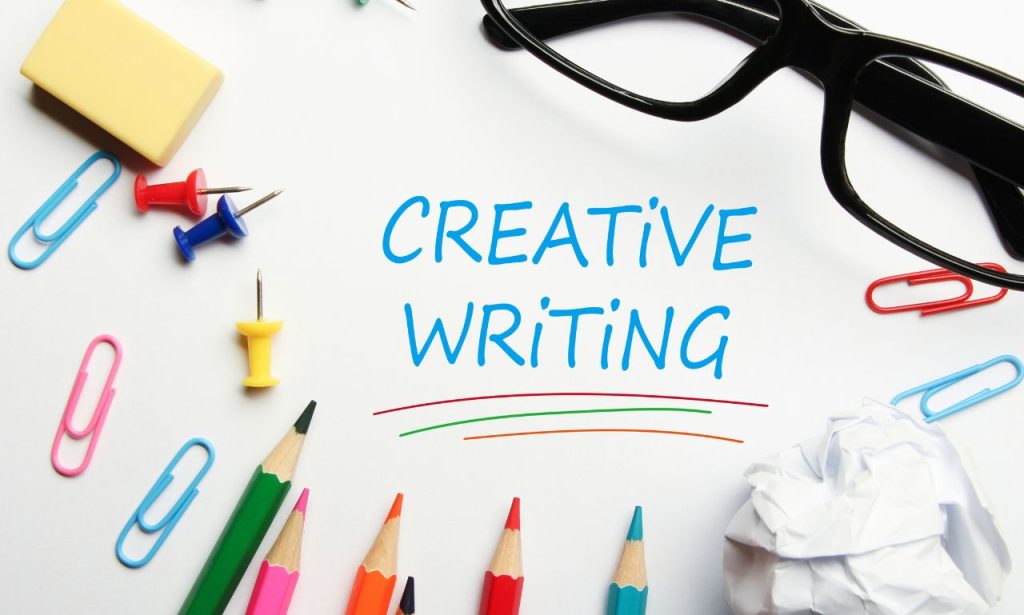Creative writing allows us to explore new worlds, emotions, and perspectives through the power of words. Creative writing will enable you to express your unique voice and imagination, unlike technical or academic writing. It’s not just about following rules—it’s about finding joy in the creation process. Let’s break down some practical strategies to help you begin your creative writing adventure with confidence.
Use Writing Prompts

Writing prompts are excellent springboards for your imagination, especially when you are unsure of where to start. They provide a foundation to build upon while allowing plenty of room for your creativity to flourish. A prompt can be as simple as a single word or as detailed as a specific scenario. The beauty of prompts is that ten different writers will create ten completely different pieces from the same starting point.
Some places to find excellent writing prompts include:
- Creative writing websites and blogs
- Writing magazines and books
- Social media groups dedicated to writing
- Writing apps explicitly designed for prompts
- Your everyday life (overheard conversations, interesting objects, memories)
I always keep a small notebook with me to jot down potential prompts as they come to me. That sunset that created an unusual shadow on my living room wall? Prompt. The strange interaction I witnessed between a child and an older adult at the grocery store? Definitely a prompt.
Write as Often as You Can
The key to developing your creative writing abilities is consistency. Your distinct style will emerge as you write more and become more at ease with the process. Try setting aside a specific time each day or week dedicated solely to writing. Even 15 minutes can make a difference if you’re consistent. Many successful writers swear by morning writing sessions before the distractions of the day take over, but the best time to write is whenever you can fit it into your schedule.
Don’t pressure yourself to create a masterpiece every time you sit down to write. Some days will flow easily, while others might feel like trudging through mud. Both experiences are valuable parts of the creative process.
Read Widely
Every established writer will tell you that good readers make good writers. Reading exposes you to different writing styles, voices, and techniques that you can adapt and incorporate into your work.
Challenge yourself to read outside your comfort zone. If you typically enjoy science fiction, try picking up a literary novel, poetry collection, or even a well-written biography. Consider how different authors craft dialogue, build worlds, develop characters, and structure their stories.
When you read something that moves you, could you take a moment to analyze why it works? Is it the rhythm of the sentences? The vivid imagery? The authentic dialogue? Understanding what resonates with you as a reader can inform your choices as a writer.
Take Inspiration From Many Sources
Creative writing inspiration doesn’t only come from books. Movies, music, art, nature, conversations, dreams, and personal experiences all offer rich material for your writing.
Keep yourself open to the world around you. That documentary about deep-sea creatures might spark an idea for a fantasy story, or perhaps a painting in a local gallery might inspire a poem. The connections you make between seemingly unrelated things often lead to the most original ideas.
I once wrote a short story based on a conversation I overheard at a coffee shop. Two strangers were discussing their childhood memories of the same small town, though they’d never met each other there. Their shared nostalgia for places that no longer existed became the seed for a story about memory and connection that I might never have thought of otherwise.
Learn How to Edit
Learning to edit your work is as vital as learning to write it. Permit yourself to write a messy first draft, knowing you’ll refine it later.
When editing, look for:
- Words or phrases you use too frequently
- Places where more specific language would strengthen your writing
- Sentences that could be more concise
- Areas that need more description or dialogue
- Consistency in voice, tense, and point of view
It often helps to step away from your writing for a day or two before editing. This distance gives you a fresher perspective and makes it easier to see what’s working and what needs improvement.
Write With Intention
Writing with a purpose can accelerate your writing development, but enjoying the creative process is still crucial. Consider your goals before beginning a new project. Are you observing a specific feeling? Are you practicing your ability to have conversations? Are you trying out a different genre? Instead of limiting your creativity, setting goals gives you a compass to direct your writing. Your intentions may change as you go along, and that’s also acceptable.
Practice Overcoming Writer’s Block
Almost every writer experiences writer’s block at some point. Instead of seeing it as a failure, view it as a natural part of the creative process you can learn to work through.
Some effective strategies for overcoming writer’s block include:
- Free writing for 10 minutes without stopping or censoring yourself
- Changing your environment (try writing in a different room or at a park)
- Taking a walk to clear your mind
- Setting a timer and challenging yourself to write a certain number of words
- Shipping to a different section of your project that feels more appealing
- Reading something inspiring to get your creative juices flowing
Remember that writer’s block isn’t permanent. Sometimes, the best approach is to be gentle with yourself and take a short break before trying again.
Forms of Creative Writing

Creative writing encompasses many different forms, each with its conventions and opportunities for expression. Exploring various forms can help you discover where your passion and strengths lie.
Poetry
Poetry may provide the greatest freedom of all forms of creative writing. Poetry allows you to experiment with language, rhythm, and imagery in focused, powerful ways, whether writing free verse or structured sonnets. Don’t worry about adhering to rules or forms when starting with poetry; concentrate on producing realistic feelings and vivid imagery. To experience the rhythm and melody of poetry, read it aloud. Finding the ideal words and arranging them to make meaning beyond their definitions is the essence of poetry.
Fiction
Fiction includes everything from flash fiction to epic novels. Fiction is about creating authentic characters and situations, even if they’re entirely imaginary.
When writing fiction, consider these elements:
- Characters with precise desires and obstacles
- A setting that feels real to readers
- Conflict that drives the story forward
- Dialogue that reveals character and advances the plot
- A satisfying resolution (which doesn’t necessarily mean a happy ending)
Start small with short stories before attempting longer works. This allows you to practice crafting complete narratives without committing to a novel-length project.
Screenwriting
Screenplays are the blueprints for films and TV shows, focusing primarily on visual scenes and dialogue. Screenwriting has specific formatting requirements that help production teams understand how to translate words to the screen. Many free resources and software options can help you learn these conventions. The visual nature of screenwriting challenges you to “show, don’t tell”—a valuable skill for any form of creative writing.
Creative Nonfiction
This includes nature writing, literary journalism, memoirs, and personal essays. Combining factual accuracy with captivating narrative elements is the secret to writing compelling, creative nonfiction. While remaining authentic, your true stories should be as convincing as fiction. When writing about actual people or events, this form necessitates paying close attention to ethical considerations. Respect for the facts and the topics you write about should always guide your creative nonfiction approach.
Conclusion
To start writing creatively, you only need curiosity, perseverance, and a desire to write; you don’t need exceptional talent or a lot of training. Start with small, doable projects you are passionate about, and don’t be scared to try out different forms and styles until you find what works. Recall that all well-known authors were once novices. Successful writers are distinguished from those who give up by their dedication to regular attendance and acceptance of the learning process, not by their innate talent.
Your creative writing practice is uniquely yours. It may become a professional pursuit, a therapeutic outlet, or a joyful hobby. Whatever your writing takes, creating with words offers rewards that extend far beyond the page.
So grab your notebook or open that new document, and write the first words of your creative writing journey today. Your stories matter, and the world is waiting to hear them.
ALSO READ:
FAQs
No! While creative writing courses can be helpful, they’re not necessary. Many successful writers are self-taught through reading widely, practicing regularly, and seeking feedback from others.
Your writing voice develops naturally over time as you write more. Your reading, life experiences, and personal perspective influence it. Focus on writing authentically rather than trying to sound like someone else.
This is an entirely personal preference. Some writers find that writing by hand connects them more deeply to their creativity, while others prefer the speed and flexibility of typing. Try both approaches and see what works best for you.
This is a tricky question because “good” is subjective. Finding trusted readers who can give honest, constructive feedback is invaluable. Writing groups, online forums, or friends who read widely can provide perspective on your work.
Start small—even 10-15 minutes daily- can help build your writing habit. Look for pockets of time in your day, like early mornings, lunch breaks, or right before bed. Remember that consistency matters more than duration.



